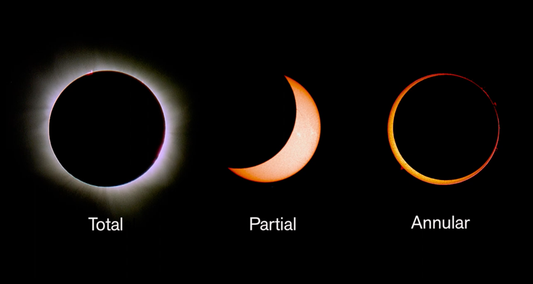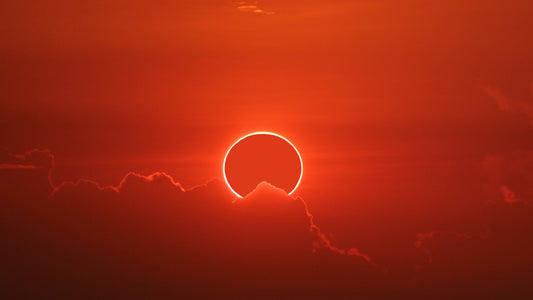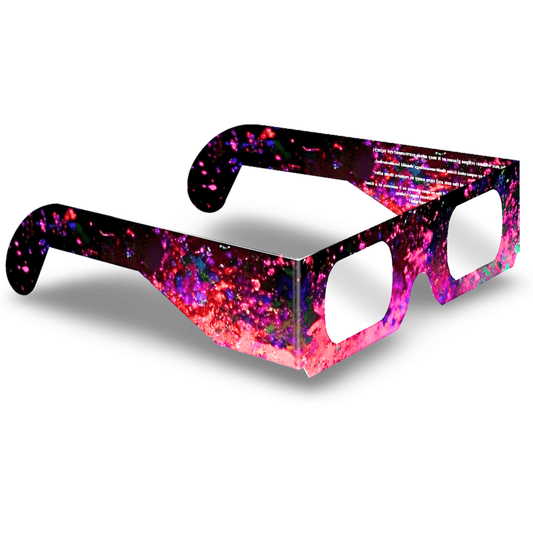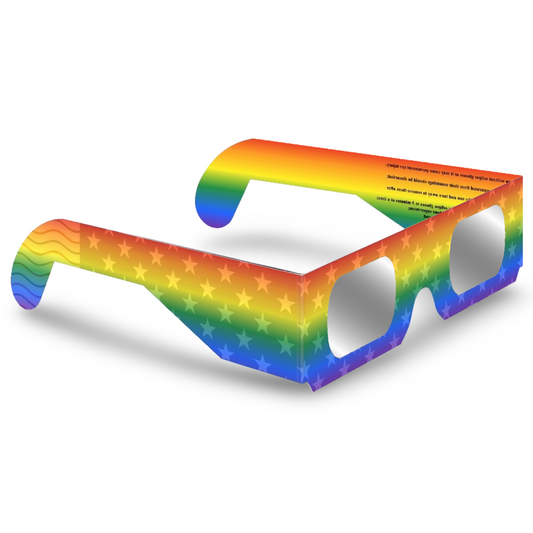Solar Eclipse Myths: Debunked!
Solar eclipses have captivated humans for millennia. Ancient cultures developed imaginative myths and superstitions to explain these mysterious celestial events. As astronomy has advanced, we now understand the true science behind eclipses. Let's explore some common solar eclipse myths and the facts that debunk them.
Myth: Eclipses Mean the End of the World
Many ancient cultures associated eclipses with apocalyptic doom. The Inca believed eclipses occurred when their sun god was angry and signified the potential end of the world. Chinese myth declared solar eclipses foreshadowed coming disaster.
Fact: Eclipses are completely normal astronomical events. They simply align the moon directly between the Earth and sun, blocking sunlight. Eclipses have no supernatural meaning and are not omens of impending doom. They pass quickly with no lasting effects.
Modern astronomy can accurately predict where and when eclipses will occur based on the moon's regular orbits around Earth. Their appearance through history shows eclipses are just temporary regular alignments, not causes of destruction.
Myth: The Sun Disappears During an Eclipse
In ancient times, people commonly believed the sun was eaten or destroyed during an eclipse. Norse cultures blamed wolves Skoll and Hati for swallowing the sun and moon. Vietnamese myth declared a celestial frog devoured them instead.
Fact: The sun remains present during eclipses. The moon passes directly between the Earth and sun, perfectly aligning to block the sun's light. The moon's shadow temporarily darkens the surface below, but the sun itself is still present behind the moon.
Studying eclipses led astronomers to realize the sun's continuous existence despite temporary darkness on Earth. The moon's precise alignment in its orbit causes eclipses, not the disappearance of the sun.
Myth: Pregnant Women Shouldn't Go Outside
Various superstitions caution special treatment of pregnant women during solar eclipses. Some myths warn exposure can cause birth defects. Others say direct eclipse viewing could curse the child with blindness or a cleft lip.
Fact: No scientific evidence shows eclipses can harm pregnant women or unborn babies. There is no reason to treat eclipses differently than any other day. Taking normal safety precautions like wearing eclipse glasses can allow pregnant women to enjoy the experience.
However, one study did observe a slight increase in births during and after eclipse events. The excitement and disruption of daily routines may contribute to triggering labor. But the eclipse itself has no direct impact on pregnancy.
Myth: Food Spoils Faster During an Eclipse
Ancient eclipse myths attribute rapid food spoilage to the temporary darkness and drop in temperature caused by the sun's disappearance. Folk wisdom cautions against eating or preparing foods during an eclipse to avoid this effect.
Fact: While eclipses do cause temperature dips, the duration is far too brief to significantly impact food preservation. Totality only lasts for around 2-7 minutes in one location. This negligible cooling effect does not create conditions that would rapidly rot food.
However, the power of myth can become reality. If people believe eclipses spoil food and stop cooking, improperly stored food may rot faster simply due to human behavior changes. But the eclipse alone does not directly increase spoilage rates.
Myth: Eclipses Can Blind You
Folklore frequently warns that looking at an eclipse can cause blindness or permanently damage vision. Some myths even claim blindness can be passed to unborn children by gazing at an eclipse.
Fact: Looking directly at the sun without eye protection can cause temporary or permanent vision damage. However, blindness or eye trauma is easily avoided during an eclipse by taking proper viewing precautions.
Wearing certified ISO-compliant eclipse glasses blocks harmful ultraviolet and infrared radiation to observe an eclipse safely. Telescopes, cameras, and other optics also require fitted solar filters for direct eclipse viewing. Taking straightforward steps to protect your eyes keeps eclipses from being a threat.
Myth: Birds Fall Out of the Sky and Dogs Go Mad
Wild tales around animal reactions to eclipses abound, from birds dropping dead to dogs turning rabid. In the anxious lead up to eclipses, people spread rumors that animals will exhibit crazy behavior.
Fact: Most animal behavior changes during eclipses are mild, temporary, and harmless. Birds may go quiet or return to roosts. Nocturnal animals like bats sometimes emerge. But these are normal responses to short-term light changes.
Domesticated pets may bark or meow exhibiting anxiety. But there is no evidence eclipses drive animals dangerously mad. Animals simply react to the unusual daytime darkness and resume normal activity afterward.
Myth: Eclipses Can Open Portals for Communication
Modern new age eclipse mythology declares doorways open for communicating with spirits during eclipses. Some think the alignment of celestial bodies enables contact with the dead and metaphysical realms.
Fact: No scientific evidence supports any supernatural communications during eclipses. While astronomy involves precise alignments, these have no magical properties. Eclipses are purely natural astronomical events without paranormal effects.
Interest in the occult arts may increase around eclipses for symbolic reasons. But the phenomena themselves do not enable contacting spirits, extraterrestrials, or any entities outside our normal experience. Eclipses provide serene natural beauty, not supernatural portal openings.
Myth: Earth Emits Special Energy During Eclipses
New age mythology also claims eclipses produce or reveal powerful energy fields surrounding the Earth. Believers think this energy can be harnessed to heal, manifest desires, or reach higher planes of consciousness.
Fact: No distinct energy fields are generated or detected during eclipses. While the moon's shadow does darken a region as it passes, this does not produce or allow access to mysterious energy. Human bio-electric signals and Earth's natural electromagnetic fields are not significantly altered.
However, experiencing such a visually stunning event can create psychological excitation. This may subjectively feel like energy to some. But no special eclipse energy exists to channel compared to any other day on Earth.
Myth: Eclipses Can Predict the Gender of Unborn Children
Folk traditions speculate about reading omens in eclipses to foresee future events. Some myths claim the gender of an unborn baby can be determined by where on the pregnant mother's body an eclipse's shadows fall.
Fact: No scientific evidence suggests any eclipse phenomena predict events, let alone reveal prenatal details. The moon's faint shadow cannot convey meaningful information beyond the laws of astronomy. Eclipse omens are purely imaginative myths without prognostic power.
In reality, a child's sex is decided at conception based on genetics. Details like gender are set long before eclipse shadows briefly sweep by. Eclipses have no supernatural insight into the future.
Myth: Esoteric Powers Activate During Eclipses
Occult traditions teach secret esoteric powers can be unlocked during eclipses. Ritual magick, alchemy, and spiritual transcendence are thought more potent under eclipse alignments. Myths claim tapping this power requires special knowledge.
Fact: No evidence indicates eclipses enable any metaphysical powers. While astronomy does involve precise celestial motions, these have no supernatural effects. Eclipses result from simple cause-and-effect orbital mechanics of the solar system.
The rare beauty of eclipses may inspire mystical rumination on life's grandeur. But the phenomena themselves activate no magical forces, paranormal abilities, or alchemical transformations. Eclipses have profound enough meaning from their scientific reality alone.
Myth: People Go Insane or Turn into Animals
Wild eclipse folklore warns of people losing their minds or morphing into animals. Tales spread of the insane running naked through streets and werewolves emerging under eclipse madness.
Fact: No records exist of people transforming into animals under any circumstances. And while eclipses can generate excitement, they have no capacity to cause mental breakdowns. Their effects are purely visual and pass quickly.
However, historical records do document criminal and bizarre behavior intentionally timed with eclipses. Con artists claimed to transform or committed crimes using the distraction of the eclipse. But these manipulative performances took advantage of myths rather than demonstrating any real eclipse-induced effects.
Myth: Eclipses Can Cure Diseases
Ancient traditions promoted ritual cures for disease said to activate under eclipse alignments. People believed bathing in streams or viewing reflections during eclipses could heal afflictions and ailments.
Fact: No waters, eclipse rituals, or reflections hold special healing properties. While eclipses demonstrate astronomical precision, they have no supernatural effects on human health. Any medicinal outcomes credited to eclipses result from placebo effects, not celestial influence.
However, increased ultraviolet radiation during eclipses from unfiltered sunlight may temporarily relieve some skin conditions. But this benefit comes from natural UV exposure, not the eclipse itself. Claims of eclipse healing properties are unfounded.
When Myth Meets Science
While ancient cultures conjured creative myths to explain eclipses, modern science now reveals the truth behind these awe-inspiring events. The fanciful myths remind us of humanity's endless curiosity about the cosmos.
Next time an eclipse crosses the sky, marvel at the moon's precise dance with the sun while remembering the tales it used to invoke. With proper safety measures, observe how the moon's shadow sweeps along Earth as it has for millennia. Let the eclipse inspire reverence for nature's majesty and science's progress in equal measure.











